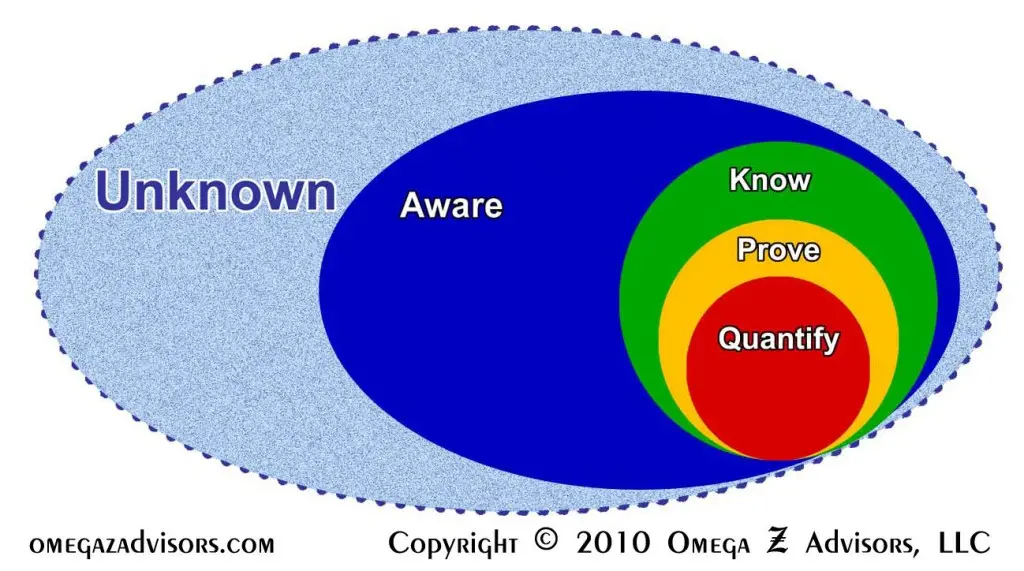5 Knowledge States To Assess Facts and Information Better
While helping a non-profit, a board member said, “We can only deal with a problem if we know there is one.” Here, understanding knowledge states shows why this as false. In this case, the statement ignores the idea of prevention, dealing with problems before they arise.
Knowledge States and Assessing Problems
In reality, problems don’t care whether we know they exist. They remain problems. In this case, if we don’t know there is a problem, it’s unknown. Asking, “Do we know there is no problem?” shows this. We don’t know if there is a problem. It’s in the state of unknown.
Furthermore, we might not know there is a problem, but we might be aware that it could exist. In this sense, conditions might be right to create one. For instance, if I haven’t changed my car’s oil, I am aware that it could be a problem even though I don’t know when it would be.
Of course, I could prove it’s a problem when my car does stop running or when I look at the last time I changed its oil. Finally, I’m able to quantify the problem in terms of the cost of an oil change. Or, I can do so by the cost of fixing an engine that freezes up from no oil or that wears down too fast from dirty oil.
Thus, understanding the state of knowledge behind facts and other information helps to assess them better. To that end, I’ve created the map below. It has five basic states: Unknown, Aware, Know, Prove and Quantify. Each is a subset of the previous one:

Five Knowledge States
- Unknown: Not knowing what we don’t know
- Aware: Knowing what we don’t know, or not being able to express what we do know
- Know: Knowing without proof but being able to express what we know
- Prove: Using approaches that adhere closely to the scientific method or the one used in courts of law.
- Quantify: Being able to count, calculate or formulate.
The Relationship of Knowledge States To Reality
This map of knowledge states covers all of reality. Therefore, by looking at knowledge in this manner, the map shows how much of reality one excludes at any time. For instance, only accepting what is quantifiable and provable ignores a huge chunk of reality. This chunk does not go away. It’s still there.
For instance, imagine warfare or the game of poker. Suppose no one took action unless proved it was the right one. This limits the possible actions. Yet, life goes on. It does not care what people can prove and quantify.
Business is not immune to this. Thus, how people deal with what they don’t know or barely know determines success far more than what they can prove and quantify. Returning to the advice of the above board member, this means only dealing with what we know invites failure. It invites missing some great opportunities too.
Again, showing how much people miss by only looking at what they know, prove and quantify, is the real insight of this map of knowledge states. In short, if we only deal with what we can prove and quantify, we aren’t dealing with a full deck.


